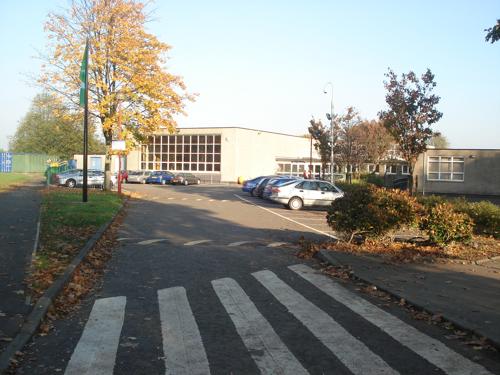 Sharon Wallace, Curriculum Support Officer, Curriculum Support Team has delivered a CPD session to 22 teachers entitled ‘Active Literacy Reading – The Thinking Reader Approach’.
Sharon Wallace, Curriculum Support Officer, Curriculum Support Team has delivered a CPD session to 22 teachers entitled ‘Active Literacy Reading – The Thinking Reader Approach’.
The aims of the session were:
To provide an overview of the thinking reader approach
To provide an overview of the six comprehension strategies in reading
To examine ways forward for the teaching of reading using active approaches.
After examining the benefits of reading, Sharon explained that the thinking reader approach is used to teach children reading strategies to improve their ability to understand what they read. It is an approach which can be applied to a range of ‘texts’.
Sharon demonstrated the thinking reader approach using the text ‘Chinese Cinderella’. Colleagues gained a deeper understanding of this text through the following activities:
- Using prior knowledge – what do you already know about Cinderella?
- Metalinguistics – colleagues were asked to include the word ‘unwanted’ in a sentence and highlight words/ phrases they like/ don’t understand in an identified paragraph
- Visualisers – colleagues were asked to produce a visualiser of the character Naing using the information in the extract
- Inference – two questions were posed about the text relating to inference e.g. What is the relationship between Naing and Jun-Ling
- Main Ideas – What are the main themes from the text you can gather using the information you have already been given
- Summarising – summarise the character of Naing in a tweet
Sharon then explored how the thinking reader approach relates to the key reading skills which are assessed in the context of the Scottish Survey for Literacy and Numeracy.
Sharon then shared how she had previously used the thinking reader approach with the following texts:
P2 – The Daily What article/ Beware of the Bears
P3 – The Wish Cat
P4 – Michael Rosen’s poetry
P5 – Moving Image Education film
P6 – Poetry from the Active Literacy Pack
P7 – Poetry from the Active Literacy Pack
S1 – Chinese Cinderella
The course also looked at the comprehension triangles from the Active Literacy programme:


Sharon then examined ways to use effective questioning in reading lessons, examining the role of Blooms fans and how these can be used at different ages and stages.
The course was well received and feedback included:
“I wanted to thank you for the CPD last night. It’s really helped me work out a plan of action for all of my reading groups and not just the group that weren’t ‘getting’ the Bloom’s Fans work. It was good to have input on the key comprehension strategies and I’m going to start as of Monday”.
“I really enjoyed the course last night and I think (or hope!) that I am starting to understand the type of questions and activities that the pupils should be completing”.
This course will be re-run on Tuesday 11th March from 4 til 5.30pm for any colleagues who didn’t get an opportunity to attend this one.








![WP_20160620_006[1]](https://blogs.glowscotland.org.uk/fa/public/CurriculumSupport/uploads/sites/1906/2016/06/WP_20160620_0061.jpg)
![WP_20160620_001[1]](https://blogs.glowscotland.org.uk/fa/public/CurriculumSupport/uploads/sites/1906/2016/06/WP_20160620_0011.jpg)
![WP_20160620_002[1]](https://blogs.glowscotland.org.uk/fa/public/CurriculumSupport/uploads/sites/1906/2016/06/WP_20160620_0021.jpg)










